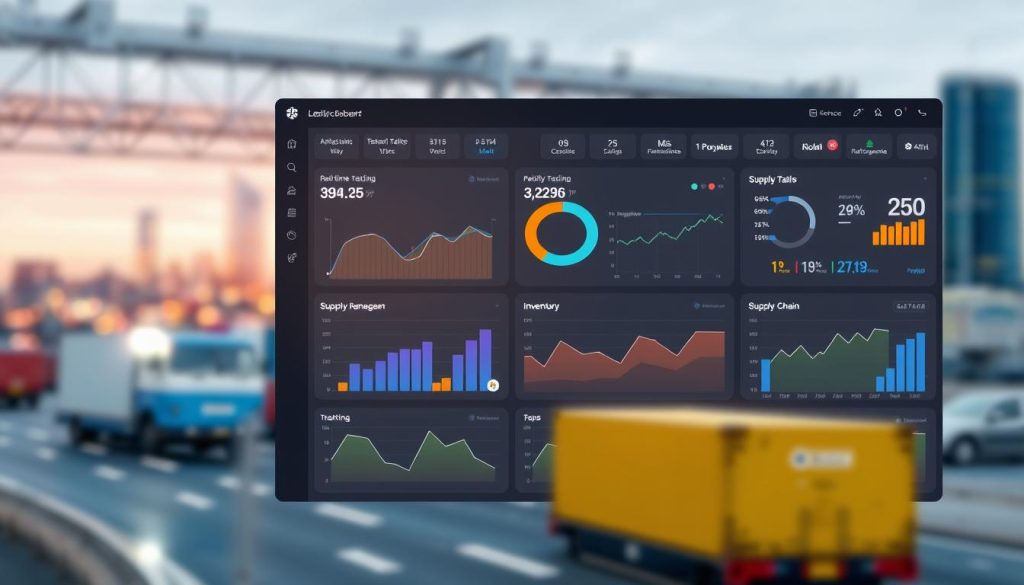Businesses today need flexible shipping options. A freelance freight forwarder offers modern logistics solutions. These experts work independently outside traditional companies.
More companies now choose independent logistics professionals. This trend brings many advantages. Freelancers provide personalized services and global market knowledge.
Successful professionals have strong experience in shipping. Technology helps them manage international freight efficiently. This article explores how these experts can help your business.
Table of Contents
Key Takeaways
- Freelance forwarders offer flexible shipping solutions for businesses
- They operate independently from traditional logistics companies
- Businesses benefit from personalized service and global expertise
- Technology enables efficient management of international shipments
- Experienced professionals provide reliable logistics support
- This approach works well for various types of companies
Why Choose a Freelance Freight Forwarder for Your Business?
Modern companies increasingly seek logistics partners who offer tailored approaches to shipping management. These independent professionals provide unique advantages that traditional firms often cannot match.

Personalized Attention and Flexible Service
Independent logistics experts deliver exceptional customer service that large corporations struggle to provide. They focus completely on your specific requirements rather than corporate protocols.
This approach means faster response times and dedicated support. You work directly with the decision-maker rather than navigating department hierarchies.
FL Logistics demonstrates this personalized approach through their two decades of experience. Serving over 10,000 clients across 15 locations, they understand diverse business needs.
These professionals adapt quickly to market changes and client demands. Their flexible work arrangements allow for project-based engagements that scale with your growth.
« The right logistics partner becomes an extension of your team, not just a service provider. »
Many businesses report improved delivery performance after switching to independent experts. The direct communication channel eliminates misunderstandings and delays.
Cost-Effective Solutions for Growing Businesses
Companies achieve significant savings by avoiding full-time employee overhead costs. You pay for expertise only when needed, making budgets more predictable.
Growing businesses particularly benefit from this scalable model. Your logistics support expands precisely with your shipment volumes and complexity.
FL Logistics leverages cutting-edge technology across their Dubai headquarters and regional offices. This technological advantage translates into efficient operations and cost savings for clients.
Real-world examples show businesses reducing shipping expenses by 20-30% through independent arrangements. These savings come from optimized routes, negotiated rates, and efficient management.
The competitive advantage gained through personalized logistics solutions is substantial. Companies enjoy faster customs clearance, better carrier relationships, and specialized handling when needed.
This approach works exceptionally well for businesses in France seeking international shipping expertise. The local knowledge combined with global experience creates optimal solutions.
Key Services Offered by a Freelance Freight Forwarder
Expert logistics coordination spans air, ocean, and road transport with specialized handling capabilities. These professionals manage complex shipping requirements through comprehensive service offerings.

Air, Sea, and Land Freight Coordination
Independent experts coordinate all transportation modes seamlessly. They work with major airlines for urgent air shipments. Ocean freight services handle everything from standard containers to oversized cargo.
Land transport networks cover regional and cross-border movements. FL Logistics demonstrates this with GCC coverage and customs support. Their 24/7 monitoring ensures shipments stay on track.
Multi-modal solutions combine different transport methods efficiently. This approach optimizes costs and delivery times. Clients benefit from integrated routing across air, sea, and land options.
Customs Clearance and Compliance Expertise
Navigating international trade regulations requires specialized knowledge. Professionals handle documentation for smooth border crossings. They understand specific requirements for different countries.
Export compliance ensures shipments meet all legal standards. This includes proper classification and valuation of goods. Experts stay current with changing customs regulations worldwide.
« Proper customs handling separates successful international shipments from delayed ones. »
French businesses particularly benefit from EU regulation expertise. Professionals manage VAT, tariffs, and import procedures efficiently. This knowledge prevents costly delays and penalties.
Project Cargo and Specialized Handling
Complex shipments demand exceptional handling skills. Project cargo involves oversized or heavy equipment transportation. Breakbulk services manage non-containerized goods effectively.
Dangerous goods require strict safety protocols and compliance. Experts ensure proper labeling, packaging, and documentation. LCL consolidations offer cost savings for smaller shipments.
FL Logistics handles sensitive materials with care and precision. Their experience with heavy machinery and specialized equipment is extensive. This capability supports industries from construction to energy.
These comprehensive services demonstrate why businesses choose independent logistics professionals. The combination of technical knowledge and practical experience delivers reliable results.
Essential Skills and Tools of a Modern Freight Expert
The most effective logistics specialists leverage advanced digital tools alongside comprehensive compliance expertise for optimal shipping results. This dual competency separates exceptional professionals from average performers in today’s competitive market.

Proficiency in Logistics Software
Modern shipping management demands mastery of specialized software platforms. SAP Logistics and Oracle Transportation Management lead the market with comprehensive solutions.
These systems handle complex routing, inventory control, and real-time tracking. Professionals use them for efficient supply chain management across global operations.
Emerging platforms like Flexport and FourKites offer cloud-based analytics. They provide instant cargo visibility and predictive insights for better decision-making.
CargoWise One and BluJay Solutions deliver scalable options for various business sizes. Their integrated approach streamlines freight forwarding and warehouse operations.
« Software proficiency transforms logistics from reactive problem-solving to proactive optimization. »
Real-time tracking systems give clients peace of mind. Cloud analytics tools identify efficiency opportunities across shipping routes.
Transportation management systems optimize carrier selection and routing. Warehouse management software maintains perfect inventory control.
Artificial intelligence now predicts shipping delays before they occur. Machine learning algorithms suggest optimal consolidation strategies.
Continuous learning through software certifications keeps experts current. This technological edge ensures clients receive cutting-edge shipping services.
| Software Platform | Primary Function | Key Features | Best For |
|---|---|---|---|
| SAP Logistics | Enterprise resource planning | End-to-end visibility, analytics | Large corporations |
| Oracle Transportation | Route optimization | Carrier management, cost control | Mid-sized businesses |
| Flexport | Digital forwarding | Real-time tracking, cloud analytics | Tech-focused companies |
| CargoWise One | Global logistics | Multi-modal integration, compliance | International shipping |
| FourKites | Supply chain visibility | Predictive analytics, API integration | Real-time management |
Deep Knowledge of International Trade Regulations
Global shipping success requires extensive regulatory expertise. Professionals must understand diverse customs requirements across trading regions.
International trade regulations constantly evolve. Experts stay current with changes affecting import export procedures worldwide.
Customs documentation demands precision and attention to detail. Proper classification prevents delays and avoids costly penalties.
EU regulations particularly impact French businesses. Knowledge of VAT procedures and tariff structures is essential.
Compliance requirements vary by product type and destination country. Dangerous goods need special handling protocols and documentation.
Data management skills support compliance reporting and audit trails. Accurate records demonstrate regulatory adherence during inspections.
Trade agreement expertise maximizes duty savings opportunities. Professionals identify preferential treatment options for clients.
This regulatory knowledge combined with technical skills creates complete shipping solutions. Clients benefit from smooth border crossings and optimized costs.
The combination of software proficiency and compliance expertise defines modern logistics excellence. These skills ensure reliable, efficient international shipping services.
How to Find and Hire the Right Freelance Expert
Companies seeking shipping solutions should prioritize professionals with proven cost-reduction achievements. The selection process requires careful evaluation of both technical capabilities and business understanding.
Successful partnerships begin with clear communication and mutual understanding of project goals. This approach ensures your logistics needs receive the attention they deserve.

Defining Your Project Scope and Requirements
Start by outlining your specific shipping needs and expectations. Clearly define what success looks like for your business.
Consider these essential elements when scoping your project:
- Shipment volumes and frequency requirements
- Specific transportation modes needed (air, sea, land)
- Customs compliance and documentation needs
- Budget constraints and cost reduction targets
- Timeline expectations and key performance indicators
Detailed requirements help professionals understand your exact needs. This clarity leads to more accurate proposals and better outcomes.
Evaluating Proposals and Portfolios
Review each proposal for relevant experience and practical solutions. Look for professionals who demonstrate understanding of your specific challenges.
Portfolio assessment should focus on tangible results. Seek evidence of successful projects and measurable cost reductions.
Key elements to evaluate include:
- Experience with similar businesses and shipping volumes
- Proven track record in your industry or region
- Technical proficiency with transportation management systems
- Communication skills and responsiveness
- References from previous clients with similar needs
« The best professionals show rather than tell – their results speak for themselves through documented achievements and client testimonials. »
Platforms like PeoplePerHour offer excellent examples of successful hiring processes. Many businesses find qualified experts through these marketplaces.
For French companies, finding the right logistics professional requires attention to EU regulation knowledge. Local expertise combined with global experience creates optimal solutions.
Understanding Freelancer Rates and Market Value
Professional rates vary significantly by region and experience level. Understanding market values helps ensure fair compensation for quality work.
Regional rate ranges for logistics experts:
| Region | Hourly Rate Range (USD) | Experience Level |
|---|---|---|
| North America | $40-80 | Senior to expert level |
| Western Europe | $35-70 | Mid to senior level |
| Eastern Europe/Latin America | $20-45 | Junior to mid level |
| South Asia/Africa | $15-35 | Entry to junior level |
| Southeast Asia/Oceania | Mid-range rates | Varies by country |
Rates should reflect the professional’s specific skills and achievements. Consider these factors when evaluating costs:
- Supply chain management expertise
- Customs compliance knowledge
- Transportation system proficiency
- Successful project portfolio
- Communication and problem-solving skills
Negotiate contracts that balance fair compensation with measurable results. Clear agreements prevent misunderstandings and ensure successful partnerships.
Verify credentials and check references thoroughly. This due diligence protects your business and ensures quality service.
The right professional brings valuable expertise to your shipping operations. Their skills can transform your logistics management and reduce costs significantly.
Navigating the Hiring Process on Freelance Platforms
Finding the perfect logistics partner requires understanding how digital marketplaces operate. These platforms connect businesses with skilled professionals worldwide. The process involves several key steps that ensure successful matches.
Creating a Clear and Effective Job Posting
Your job description serves as the first impression for potential candidates. Make it detailed and specific to attract qualified professionals. Include all essential information about your shipping needs.
An effective posting should contain these elements:
- Project scope with clear objectives and timelines
- Required experience level and specific skills
- Budget range and payment terms
- Communication preferences and response expectations
- Key performance indicators for success measurement
Platforms like PeoplePerHour show excellent examples. One successful posting sought a Logistics Assistant for FedEx shipping and customs support. Another needed a Full-Stack Developer with aviation expertise.
« The best job postings act as filters – they attract the right candidates while discouraging unqualified applicants. »
Avoid vague descriptions that lead to mismatched expectations. Be specific about your freight management needs. This clarity saves time during the evaluation process.
Communicating Expectations and Setting KPIs
Clear communication establishes the foundation for successful partnerships. Discuss your shipping timelines and quality standards upfront. This prevents misunderstandings later in the project.
Establish measurable key performance indicators for your logistics needs. These should include:
- Delivery timeframes and on-time performance metrics
- Cost reduction targets and budget adherence
- Customer satisfaction levels and issue resolution times
- Data accuracy and reporting completeness
- Tracking system utilization and update frequency
Many platforms offer secure payment systems that protect both parties. Truelancer’s model involves paying only when satisfied with the work. This ensures quality service delivery.
The proposal evaluation process requires careful attention. Look for candidates with relevant experience in your industry. Check their track record with similar projects.
Review their communication skills during initial interactions. Responsive professionals typically maintain better project management. This is crucial for time-sensitive shipping operations.
Establish ongoing communication channels from the beginning. Regular updates prevent surprises and ensure smooth project execution. Use platform tools for transparent communication.
Remember that effective marketing strategies work both ways – professionals who demonstrate clear communication patterns often deliver better results. Data shows that 68% of clients research multiple providers before making contact.
Avoid common mistakes like rushing the selection process. Take time to review multiple proposals thoroughly. Check references and previous work samples when available.
The right hiring approach leads to successful long-term partnerships. Your business benefits from expert logistics support without full-time employee costs. This model works particularly well for companies with fluctuating shipping volumes.
Maximizing Your Partnership for Long-Term Success
Building a strong relationship with your logistics partner creates lasting value for your business. Effective collaboration turns shipping challenges into competitive advantages. This approach ensures smooth operations and continuous improvement.
Establishing Clear Communication Channels
Successful partnerships begin with transparent communication protocols. Set regular update schedules that work for both parties. Weekly video calls and daily email summaries keep everyone informed.
Performance review processes should happen quarterly. These meetings assess key metrics and identify improvement areas. FL Logistics uses this approach with their major clients.
Create escalation paths for urgent shipping issues. Designate primary contacts for different types of problems. This structure prevents delays during critical situations.
« Regular communication transforms logistics from a service into a strategic partnership. »
Use shared dashboards for real-time shipment tracking. Cloud-based platforms provide visibility for all stakeholders. This transparency builds trust and prevents misunderstandings.
Leveraging Their Expertise for Supply Chain Optimization
Your partner’s knowledge can transform your entire supply chain. They identify cost-saving opportunities through route optimization. Carrier selection becomes more strategic with their market insights.
Inventory management improves through better logistics coordination. Experts help balance stock levels with shipping schedules. This reduces storage costs while maintaining product availability.
Risk management strategies include diversified shipping options. Multiple carriers and routes protect against disruptions. This approach ensures consistent delivery performance.
Quality control measures maintain service standards. Regular audits and performance tracking ensure continuous improvement. FL Logistics demonstrates this through their precision handling.
Scaling operations becomes easier with expert support. Your partner adjusts services as your business grows. This flexibility supports expansion without added complexity.
| Optimization Area | Strategy | Potential Savings | Implementation Time |
|---|---|---|---|
| Shipping Routes | Multi-modal combinations | 15-25% | 2-4 weeks |
| Carrier Selection | Performance-based negotiation | 10-20% | 1-3 months |
| Inventory Management | Demand-based scheduling | 8-15% | 4-6 weeks |
| Risk Mitigation | Route diversification | Reduced delays | Immediate |
| Quality Control | Regular performance audits | Improved reliability | Ongoing |
French businesses achieve significant supply chain improvements through these methods. One company reduced shipping costs by 22% while improving delivery times. Another client cut inventory costs by 18% through better coordination.
Long-term relationships with reliable experts provide consistent value. These partnerships evolve as your business needs change. The right collaboration becomes a cornerstone of operational success.
Conclusion: Streamlining Your Shipping with the Right Partner
Choosing the right logistics partner transforms your shipping operations. Independent experts offer personalized solutions that traditional companies cannot match.
You gain flexible services that adapt to your business needs. This approach delivers cost-effective shipping management without long-term commitments.
Look for professionals with proven experience and modern expertise. Their skills in cargo handling and clearance ensure smooth deliveries.
As FL Logistics demonstrates, true partnership means more than just transport. It’s about precision, care, and solutions that support your growth.
Start exploring these options today to improve your supply chain. The right choice will elevate your shipping quality and customer satisfaction.
FAQ
What is a freelance freight forwarder?
A freelance freight forwarder is an independent logistics expert who manages shipping and supply chain operations for businesses. They handle everything from coordinating air, sea, and land transport to customs clearance, offering personalized and flexible service tailored to your needs.
How can a freelance professional help reduce my shipping costs?
By working independently, they often have lower overhead than large firms, allowing them to offer competitive rates. They also provide cost-effective solutions by optimizing routes, consolidating shipments, and leveraging their network of carriers and partners.
What services do freelance freight forwarders typically offer?
They provide a wide range of services including air, sea, and land freight coordination, customs clearance, warehousing, cargo tracking, and handling specialized or project cargo. Their expertise ensures smooth, compliant, and efficient transportation.
How do I find a reliable freelance logistics expert?
Start by defining your project scope and requirements. Then, review proposals and portfolios on platforms like Upwork or Freelancer. Look for experience with tools like SAP or CargoWise, and check reviews or past client feedback to ensure quality and reliability.
What should I include in a job posting for hiring a freight forwarder?
Be clear about your needs: specify the type of cargo, shipping routes, volume, and any special requirements. Mention desired skills, such as knowledge of customs regulations or experience with certain software. Setting clear expectations helps attract the right candidates.
How can I ensure good communication with my freelance partner?
Establish preferred communication channels early, whether it’s email, phone, or project management tools like Trello or Slack. Regular updates and clear KPIs help keep everyone aligned and ensure your supply chain runs smoothly.
Why is customs expertise important in freight forwarding?
Customs rules vary by country and change frequently. An expert ensures your shipments comply with all regulations, avoiding delays, fines, or seized cargo. They handle documentation, tariffs, and trade laws to keep your goods moving efficiently.
Can a freelance forwarder handle specialized or oversized cargo?
Absolutely! Many freelance professionals have experience with project cargo, hazardous materials, or oversized shipments. They coordinate special handling, equipment, and permits to ensure safe and timely delivery.





